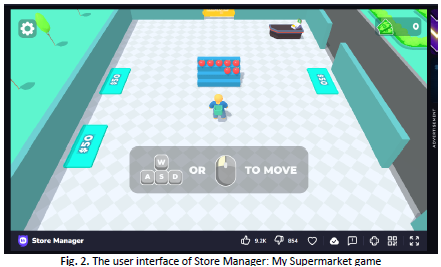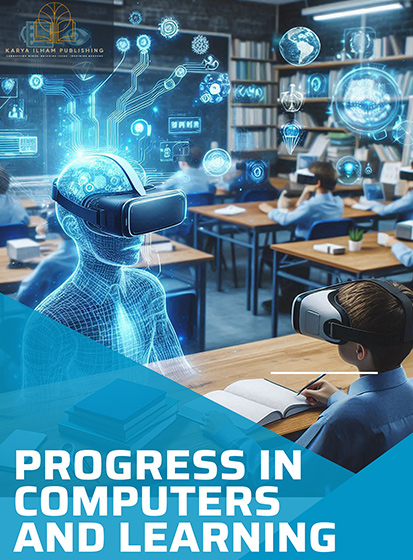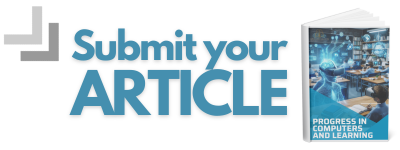Interactive Success: Empowering Young Minds through Games-Based Learning at NADI PPR Intan Baiduri
DOI:
https://doi.org/10.37934/picl.2.1.2939Keywords:
Games based-learning, interactive learning, entrepreneurial mindset, simulation games and generation alphaAbstract
This study explores the transformative potential of game-based learning (GBL) as a pedagogical approach to enhance youth entrepreneurship education, specifically focusing on the "Store Manager: My Supermarket" simulation game. Conducted in the National Information Dissemination Centre (NADI) PPR Intan Baiduri, Kepong, Malaysia, the research targeted 20 young participants aged 10 to 12, investigating how GBL can foster critical thinking, entrepreneurial skills, and learner engagement. The findings reveal that 80% of participants experienced substantial improvements in their understanding of business principles, 77% reported increased confidence in applying entrepreneurial strategies, and 98% acknowledged heightened engagement in the learning process. The game's design replicates real-world business challenges in a risk-free and interactive environment, effectively bridging the gap between theoretical knowledge and practical application. Moreover, 87% of participants expressed enthusiasm for the game-based approach, citing its engaging and hands-on nature as a key factor in sustaining interest and motivation. The study highlights the scalability of GBL for fostering entrepreneurship skills, particularly among underprivileged communities, and advocates for its integration into broader educational frameworks to address generational shifts in learning preferences. The findings position GBL as a dynamic and inclusive alternative to traditional teaching methods, capable of preparing the next generation with the critical skills required to thrive in an increasingly complex and entrepreneurial world
Downloads
References
[1] Roslan, Nur Widad, Normaliza Abd Rahim, Nur Maisarah Roslan, and Siti Nur Aliaa Roslan. "Students’ presupposition towards incooperating AI (Artifical Intelligence) technology in virtual and face-to-face classes." International Journal of Advanced Research in Future Ready Learning and Education 27, no. 1 (2022): 16-19. https://doi.org/10.37934/frle.27.1.1619.
[2] Long Tuan Kechik, Tuan Siti. "Factors of Technologies-Reliant for 'Pengajian Malaysia' Subject in Online Learning (OLL): A Conceptual Review." International Journal of Advanced Research in Future Ready Learning and Education 29, no. 1 (2023): 32–40. https://doi.org/10.37934/frle.29.1.3240.
[3] Apaydin, Çiğdem, and Feyza Kaya. "AN ANALYSIS OF THE PRESCHOOL TEACHERS'VIEWS ON ALPHA GENERATION." European Journal of Education Studies (2020). https://doi.org/10.5281/zenodo.3627158
[4] Fernando, Pumudu A., and HK Salinda Premadasa. "Game-based Activity Design in Primary School Students’ Learning Style Detection." Procedia Computer Science 239 (2024): 356-363. https://doi.org/10.1016/j.procs.2024.06.182
[5] Fernando, Pumudu A., and HK Salinda Premadasa. "Use of gamification and game-based learning in educating Generation Alpha." Educational Technology & Society 27, no. 2 (2024): 114-132. https://doi.org/10.30191/ETS.202404_27(2).RP03
[6] Adeoye, Moses Adeleke, and Hassanat Abdullateef Jimoh. "Problem-solving skills among 21st-century learners toward creativity and innovation ideas." Thinking Skills and Creativity Journal 6, no. 1 (2023): 52-58. https://doi.org/10.23887/tscj.v6i1.62708
[7] Lesinskis, Kristaps, Inese Mavlutova, Aivars Spilbergs, and Janis Hermanis. "Digital transformation in entrepreneurship education: the use of a digital tool KABADA and entrepreneurial intention of generation Z." Sustainability 15, no. 13 (2023): 10135. https://doi.org/10.3390/su151310135
[8] Gürbüz, Gizem Turan, and Murat Aydin. "The Views of Secondary School Students on Entrepreneurship-Assisted Science Course." International Education Studies 16, no. 1 (2023): 78-93. https://doi.org/10.5539/ies.v16n1p78
[9] Jukić, Renata, and Tihana Škojo. "The Educational Needs of the Alpha Generation." In 2021 44th International Convention on Information, Communication and Electronic Technology (MIPRO), pp. 564-569. IEEE, 2021. https://doi.org/10.23919/MIPRO52101.2021.9597106
[10] Cicchino, Marc I. "Using game-based learning to foster critical thinking in student discourse." Interdisciplinary Journal of Problem-Based Learning 9, no. 2 (2015). https://doi.org/10.7771/1541-5015.1481
[11] Dezuanni, Michael, Marcus Foth, Kerry Mallan, and Hilary Hughes, eds. Digital participation through social living labs: Valuing local knowledge, enhancing engagement. Chandos Publishing, 2017.
[12] Hu, Jinghang. "The Challenge of Traditional Teaching Approach: A Study on the Path to Improve Classroom Teaching Effectiveness Based on Secondary School Students' Psychology." Lecture Notes in Education Psychology and Public Media 50, no. 1 (2024): 213–19. https://doi.org/10.54254/2753-7048/50/20240945.
[13] Hamari, Juho, David J. Shernoff, Elizabeth Rowe, Brianno Coller, Jodi Asbell-Clarke, and Teon Edwards. "Challenging games help students learn: An empirical study on engagement, flow and immersion in game-based learning." Computers in human behavior 54 (2016): 170-179. https://doi.org/10.1016/j.chb.2015.07.045
[14] Lombana Bermudez, Andres, Sandra Cortesi, Christian Fieseler, Urs Gasser, Alexa Hasse, Gemma Newlands, and Sarah Wu. "Youth and the digital economy: Exploring youth practices, motivations, skills, pathways, and value creation." (2020). http://dx.doi.org/10.2139/ssrn.3622572
[15] Kolb, Alice Y., and David A. Kolb. "The learning way: Meta-cognitive aspects of experiential learning." Simulation & gaming 40, no. 3 (2009): 297-327. https://doi.org/10.1177/104687810832571
[16] Carenys, Jordi, and Soledad Moya. "Digital game-based learning in accounting and business education." Accounting Education 25, no. 6 (2016): 598-651. https://doi.org/10.1080/09639284.2016.1241951
[17] Playnoob (2021). Store Manager ; My Supermarket. https://www.crazygames.com/game/store-manager (retrieved on August 24 2024)
[18] Tsyganova, Tatiana, and Galina Shirokova. "Gender Differences in Entrepreneurship: Evidence from Gem Data." Organisations and Markets in Emerging Economies 1, no. 1 (2010): 120–41. https://doi.org/10.15388/omee.2010.1.1.14309
[19] Zulfiqar, Salman, Binesh Sarwar, Saira Aziz, Khurram Ejaz Chandia, and Muhammad Kaleem Khan. "An analysis of influence of business simulation games on business school students’ attitude and intention toward entrepreneurial activities." Journal of Educational Computing Research 57, no. 1 (2019): 106-130. https://doi.org/10.1177/0735633117746746
[20] Hsu, Ching-Yun, and Ting-Ting Wu. "Application of Business Simulation Games in Flipped Classrooms to Facilitate Student Engagement and Higher-Order Thinking Skills for Sustainable Learning Practices." Sustainability 15, no. 24 (2023): 16867. https://doi.org/10.20944/preprints202311.0082.v1.
[21] Dzaiy, Aryan Hussein Sulaiman, and Saman Ahmed Abdullah. "The use of active learning strategies to foster effective teaching in higher education institutions." Zanco Journal of Human Sciences 28, no. 4 (2024): 328-351. https://doi.org/10.21271/zjhs.28.4.18
[22] Akhu-Zaheya, Laila M., Muntaha K. Gharaibeh, and Ziad M. Alostaz. "Effectiveness of simulation on knowledge acquisition, knowledge retention, and self-efficacy of nursing students in Jordan." Clinical Simulation in Nursing 9, no. 9 (2013): e335-e342. https://doi.org/10.1016/j.ecns.2012.05.001.
[23] Oanh, Tran Thi, Luu Thi Thuy, and Ngo Thi Huyen. "The Effect of Simulation-Based Training on Problem-Solving Skills, Critical Thinking Skills, and Self-Efficacy among Nursing Students in Vietnam: A before-and-after Study." Journal of Educational Evaluation for Health Professions 21 (2024): 24. https://doi.org/10.3352/jeehp.2024.21.24
[24] Akella, Devi. "Learning Together: Kolb's Experiential Theory and Its Application." Journal of Management & Organization 16, no. 1 (2010): 100–112. https://doi.org/10.1017/s1833367200002297.
[25] A. Hakami, Ahmed, Aisha Hussin Rabie, Sultan Ghormallah M. Alzahrani, Faisal Mohammed Alnakhilan, and Khalid Awaidhalharbi. "The Impact of Simulation Education on Self-Efficacy in Pre-Registration Nursing Students." Open Journal of Nursing 14, no. 1 (2024): 51–76. https://doi.org/10.4236/ojn.2024.141005.
[26] Hough, Judith, Daniel Levan, Michael Steele, Kristine Kelly, and Megan Dalton. "Simulation-Based Education Improves Student Self-Efficacy in Physiotherapy Assessment and Management of Paediatric Patients." BMC Medical Education 19, no. 1 (2019). https://doi.org/10.1186/s12909-019-1894-2
[27] Seaborn, Katie, and Deborah I. Fels. "Gamification in theory and action: A survey." International Journal of human-computer studies 74 (2015): 14-31. https://doi.org/10.1016/j.ijhcs.2014.09.006
[28] Hough, Judith, Daniel Levan, Michael Steele, Kristine Kelly, and Megan Dalton. "Simulation-Based Education Improves Student Self-Efficacy in Physiotherapy Assessment and Management of Paediatric Patients." BMC Medical Education 19, no. 1 (2019). https://doi.org/10.1186/s12909-019-1894-2
[29] Zaini, Mohamad Shafiq, Abdul Halim Masnan, Azizah Zain, Masayu Dzainuddin, Nurul Fadly Habidin, Hafizul Fahri Hanafi, and Mohd Nazri Abdul. "A Systematic Review: Entrepreneurship Education for Kindergarten Children in Malaysia." International Journal of Academic Research in Progressive Education and Development 11, no. 2 (2022): 1019-1027. https://doi.org/10.6007/IJARPED/v11-i2/14045















